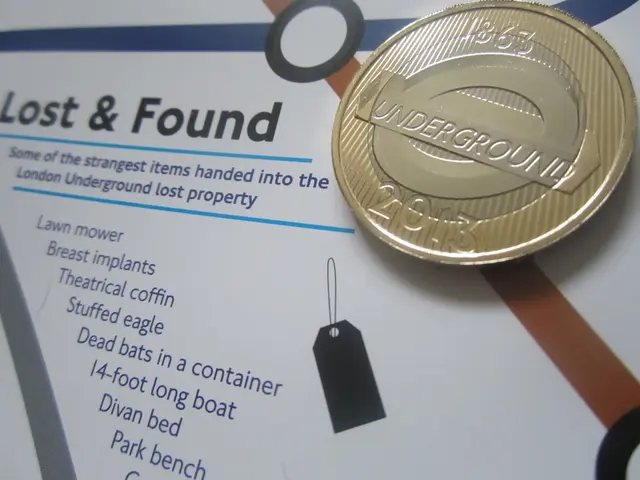Reducing the Individual Savings Account (ISA) limit proposed by Rachel Reeves - does it affect your personal financial planning?
The Chancellor of the Exchequer, Rachel Reeves, is considering a significant reduction in the cash Individual Savings Account (ISA) allowance, currently set at £20,000, with reports suggesting it could be trimmed back to as low as £4,000 or somewhere between £4,000 and £10,000[1][2][3][4].
### Implications for Savers:
The proposed reduction would lead to a substantial decrease in the tax-free savings capacity for those preferring cash ISAs. Savers would face a much lower limit on how much they can shelter in tax-free cash savings, resulting in less opportunity for tax-free interest on cash deposits[1][2].
The government frames this move as an incentive to shift savings from cash to stocks and shares ISAs, which retain the £20,000 limit, aiming to encourage investment and support British industry[1][3]. However, some commentators, including Martin Lewis, believe this move will unfairly tax savers twice—on their income and indirectly through reduced tax-free savings allowances—with limited benefit to actual economic growth[1][2].
Historical evidence suggests changes to cash ISA limits affect how much money people allocate to cash versus stocks and shares ISAs. For instance, increasing the cash ISA limit in 2014 led to a 57% jump in cash ISA subscriptions despite very low interest rates, indicating savers react strongly to such changes[3].
The potential reduction could be unpopular, with voices like Martin Lewis describing it as "piss people off economics," suggesting it may anger savers more than achieve intended behavioural changes[2].
### Summary:
The proposed reduction in the cash ISA allowance in the UK aims to redirect savings into investments like equities, potentially promoting investment into British industry. However, it reduces the tax-efficient savings capacity for those preferring cash ISAs, potentially penalising savers who rely on cash savings and causing public dissatisfaction[1][2][3][4].
Before making any investment decisions, it is crucial to remember that investing isn't suitable for those building an emergency financial buffer or those with short-term goals. The value of investments can go up or down, and there's a risk of getting back less than the initial investment[5]. Before investing, one should only put at risk money that they're comfortable losing.
It's always advisable to research funds or stocks performing well and start with small amounts. If you currently have a cash ISA and are considering transferring to a stocks and shares ISA, use the official transfer process to ensure it remains within a tax wrapper[6].
[1] https://www.theguardian.com/money/2023/apr/24/rachel-reeves-mulls-over-cash-isa-cut-to-boost-investment [2] https://www.thisismoney.co.uk/money/markets/article-11670935/Martin-Lewis-blasts-Rachel-Reeves-cash-ISA-cut-piss-people-off-economics.html [3] https://www.ft.com/content/26e4a0e6-014a-472a-96f9-4056181a0d55 [4] https://www.bbc.co.uk/news/business-65281389 [5] https://www.theguardian.com/money/2023/apr/24/rachel-reeves-mulls-over-cash-isa-cut-to-boost-investment [6] https://www.gov.uk/individual-savings-accounts-isas/transferring-your-isas
- The reduction in the cash ISA allowance might push savers to shift their savings from cash to stocks and shares ISAs, following the government's incentive to encourage investment and support British industry.
- The proposed changes could limit the tax-free savings capacity for those who prefer cash ISAs, potentially discouraging savings among some individuals and leading to a smaller emergency financial buffer.
- If the government reduces the cash ISA limit, it may have unintended consequences, as seen in 2014, when increasing the cash ISA limit resulted in a surge in cash ISA subscriptions despite low interest rates.
- To make the most of the current £20,000 stocks and shares ISA limit, it's important for savers to conduct thorough research, stay informed about the stock market, and consider transferring their cash ISA to a stocks and shares ISA carefully, using the official transfer process to maintain its tax-efficient status.








